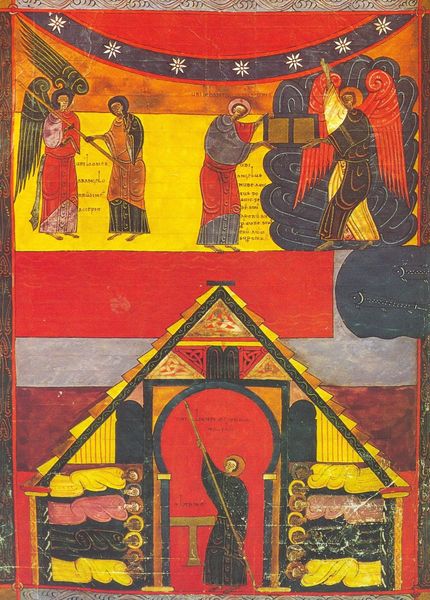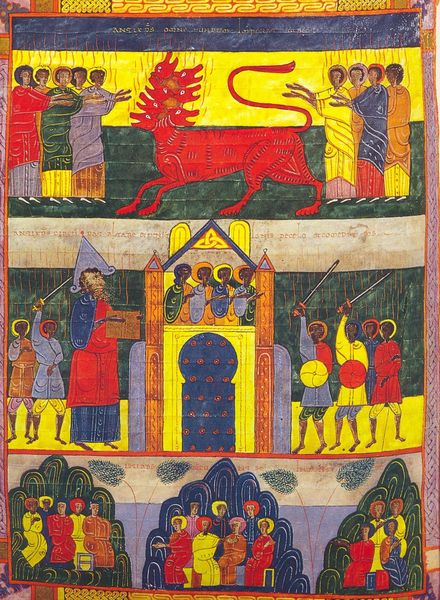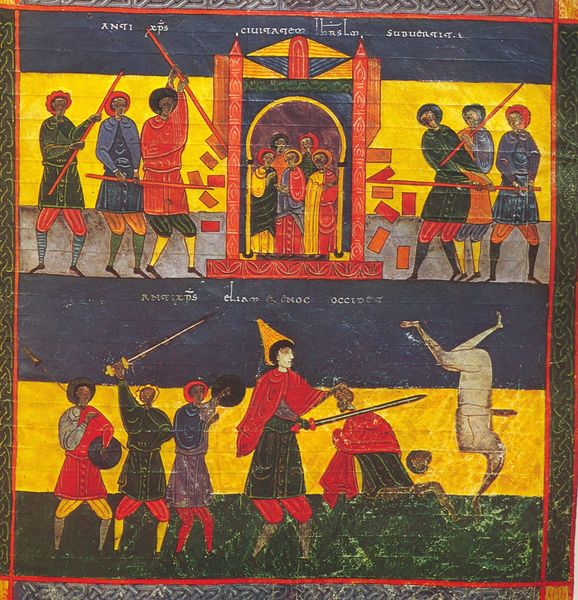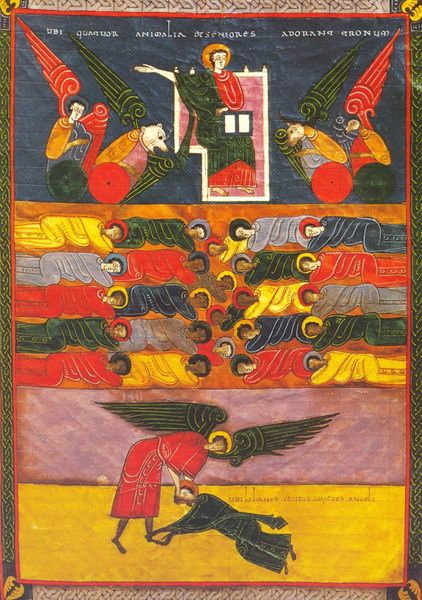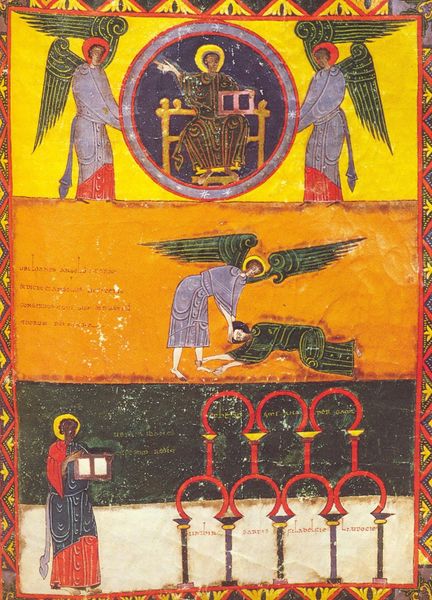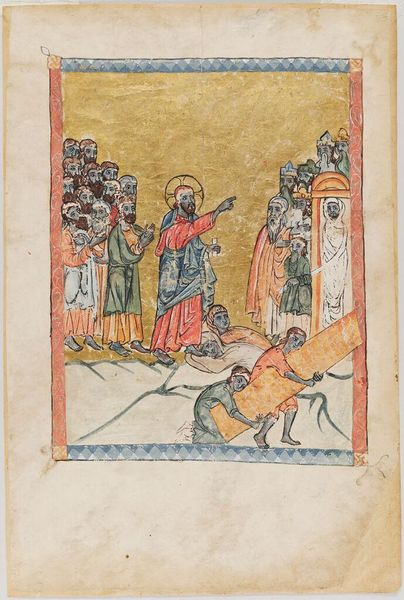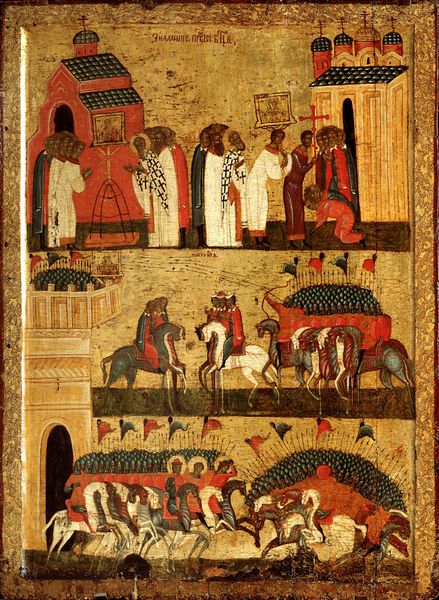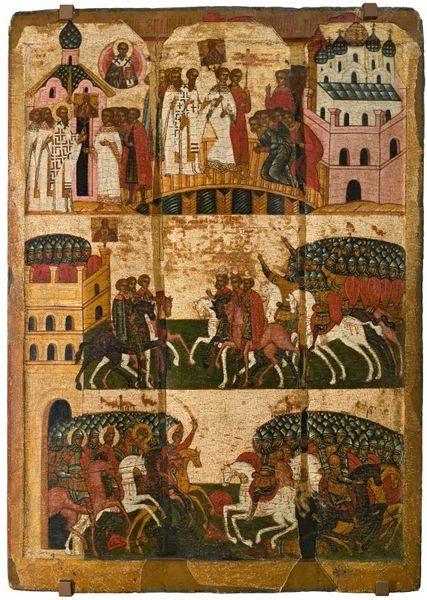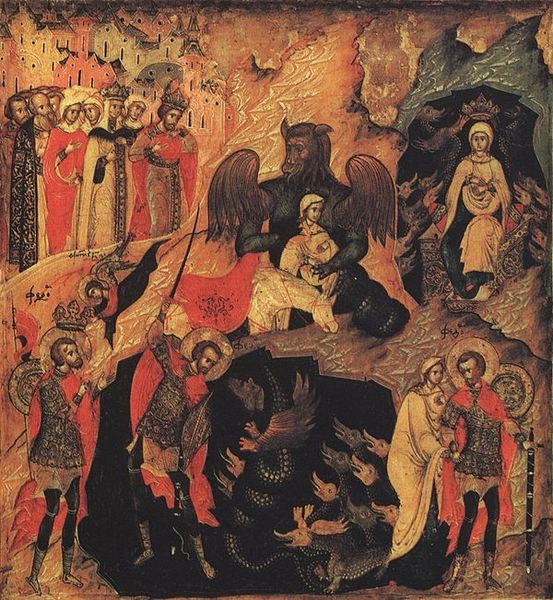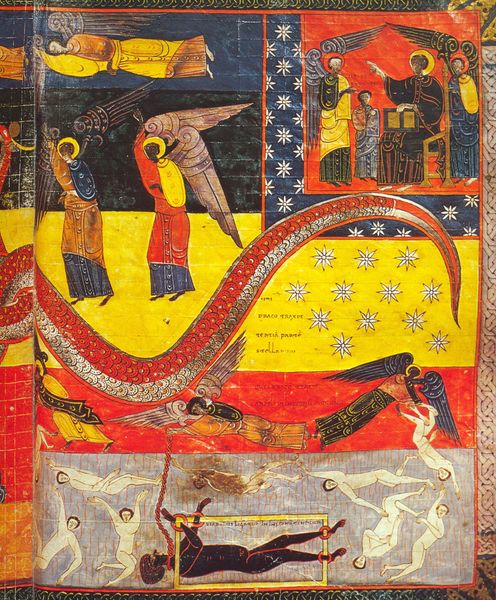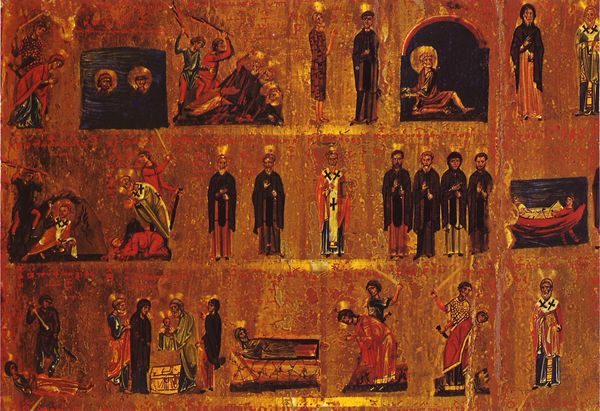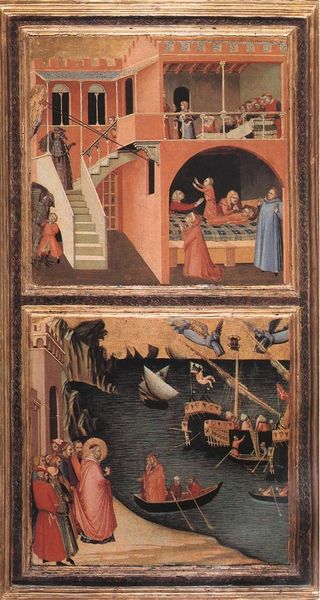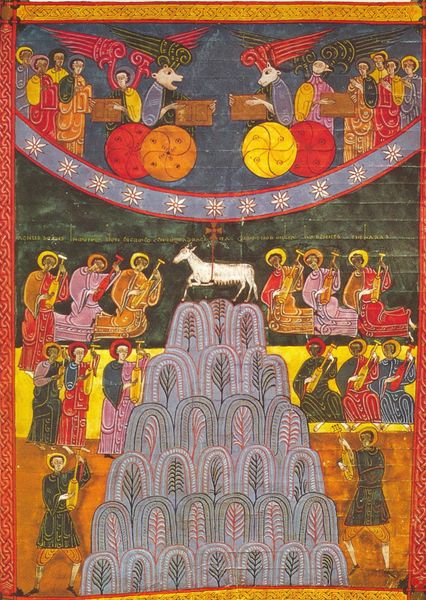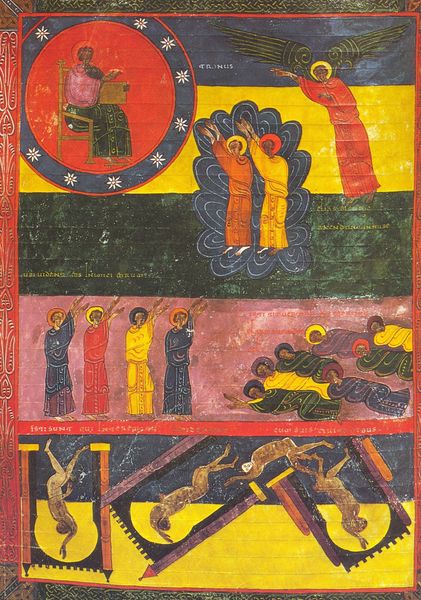
tempera, painting
#
medieval
#
narrative-art
#
tempera
#
painting
#
figuration
#
romanesque
#
miniature
Copyright: Public domain
This page from the Beatus of Facundus is made with tempera on parchment. It depicts the earth being destroyed by angels following God’s command, while mortals are harvesting grain and grapes, making wine. The act of harvesting appears across cultures, resonating with the cycle of life, death, and rebirth. In ancient Greece, Demeter, the goddess of the harvest, was central to agrarian rites, promising renewal after barren winters. Here, we observe a symbolic echo of the eucharist in the harvesting of grapes. Throughout time, this symbol of harvesting has been linked to psychological themes of labor, fruition, and mortality. The emotional weight of the image is charged with tension: even as celestial judgment is passed, ordinary life goes on. The wine-making symbolizes the passage of time and generations, and it evokes a deep-seated recognition of our shared human destiny. The image subtly questions what we leave behind after we are gone. These images resonate across time, continuously transformed and imbued with new significance, mirroring the evolving human experience.
Comments
No comments
Be the first to comment and join the conversation on the ultimate creative platform.
